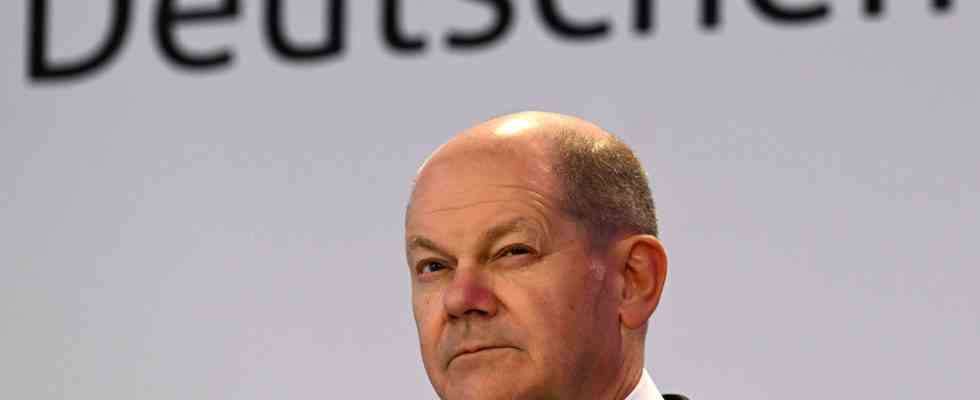Status: 03/10/2023 5:01 p.m
According to Chancellor Scholz, the German economy will grow significantly. The reason he sees is the change to climate-friendly technologies with investments worth billions. Business associations are less optimistic.
The economy is complaining about high energy prices, inflation and the war in Ukraine, but for Federal Chancellor Olaf Scholz this is no reason to be pessimistic about the economic future. On the contrary: At a meeting with the heads of the German business associations at the trade fair in Munich, he was confident.
“As far as our own country is concerned, we have every reason to be more optimistic than we were a year ago,” said the Chancellor. It was possible to make Germany independent of Russian energy imports in a very short time and to prevent an energy and economic crisis. We are also prepared for the coming winter, he emphasized.
“Billion-dollar private sector investments”
Scholz’ confidence goes even further: The SPD politician sees economic weddings for Germany: “First of all, I assume that Germany is about to enter a phase of great growth.” Scholz justified his optimism with the goal that Germany must achieve climate neutrality by 2045. The implementation of the climate protection law requires “billions, hundreds of billions of dollars in private sector investments” to an extent “that we were no longer used to for many decades”.
As examples, Scholz cited investments in new generation systems for wind turbines on the high seas or on land. Investments are also being made in the power grid, new production techniques and production processes, insulation and the construction of new houses and infrastructure. While Germany has to cope with this task and is growing, it sometimes jerks, says Scholz – probably with regard to internal coalition issues. But this is “the better problem”.
“Significant pent-up demand”
In contrast to the confident chancellor, the German economy is in constant worry mode: the heads of the four major business associations BDI, BDA, DIHK and ZDH gave the traffic light government a rather positive testimony to its crisis policy – but warned to prepare for the future arm.
Germany needs a longer-term strategy in order to remain successful worldwide, said the President of the Federation of German Industries (BDI), Siegfried Russwurm, even before the meeting. Germany has “still a lot of catching up to do” here. Problematic are the high energy costs, inflation, but also the bureaucracy. At the same time, Germany has the highest taxes in a global comparison, which makes the global competitiveness of industry “quite difficult”.
combat skills shortages
In a joint position paper, the associations sound even more dramatic: “The loss of industrial added value is no longer a theoretical danger. It’s already happening.” They call for a tax reduction for corporations to 25 percent, the acceleration of planning and approval processes, more flexible working time models including maximum weekly working hours, more modern rest time regulations and faster immigration of skilled workers.
Industry calls for relief in bureaucracy and taxes at the trade fair
Hanna Heim, BR, daily news at 4:00 p.m., March 10, 2023
Scholz also declared securing skilled workers to be an urgent challenge, both through training at universities and in the trades. Among other things, one must ensure that women’s employment is increased through good childcare and that working life remains attractive for as long as possible. With a view to the immigration of workers, Scholz explained that this will “accelerate considerably this year”.
Experts do not see a wave of bankruptcies
Despite the pessimistic tones from the economy, experts have so far seen no signs of a wave of bankruptcies in German companies. Although the number of insolvencies across the economy had recently risen over the year, they were still below the long-term values.
At least among the large corporations, some have even come through the crises very well so far. Many reported high profits, some at record levels. The armaments group Rheinmetall, for example, made the leap into the DAX after the share had almost doubled since the start of the Russian war of aggression in Ukraine a good year ago.

